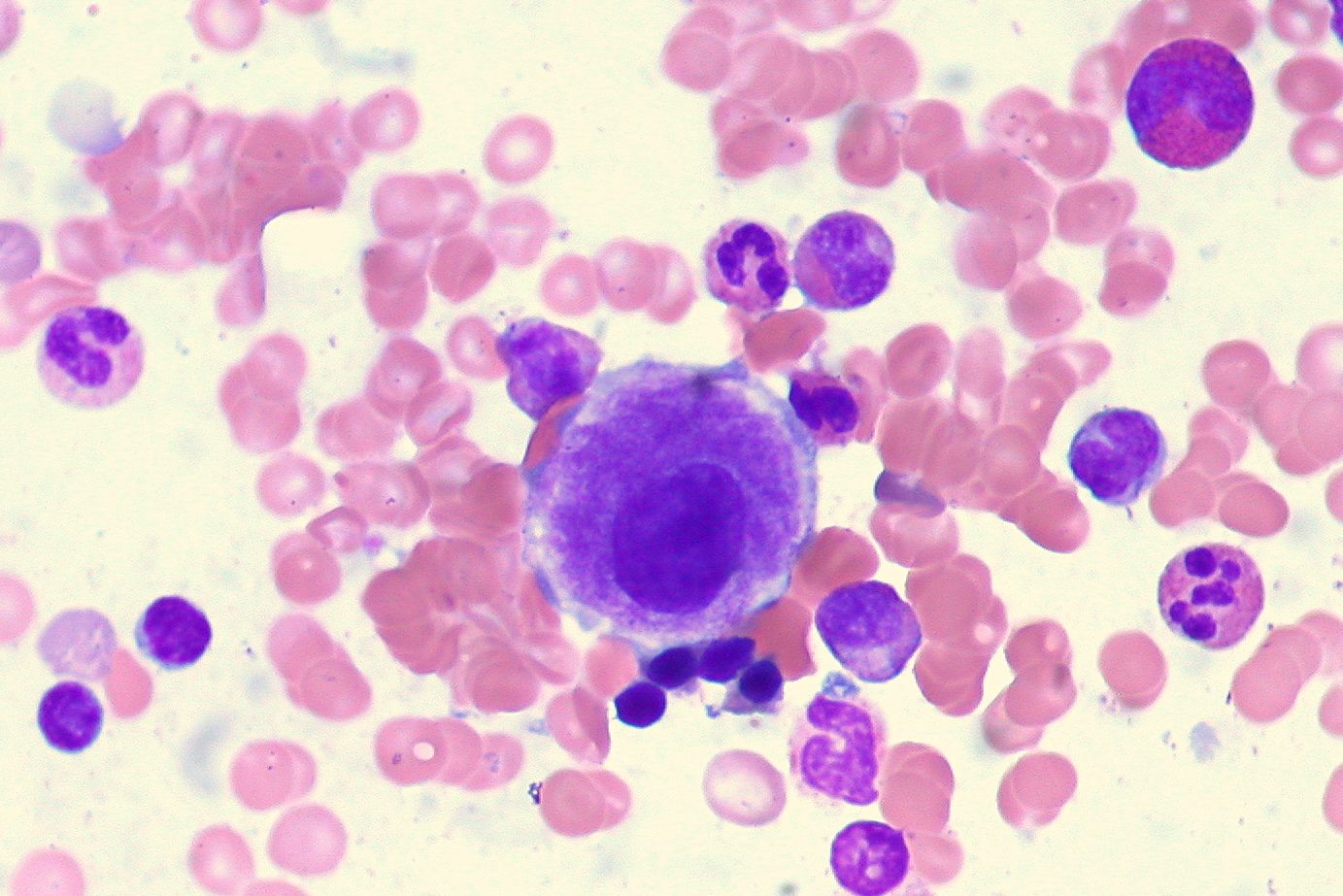FDA Gives Priority Review to Luspatercept-aamt for Anemia in Lower-Risk MDS
Data from the phase 3 COMMANDS trial support a supplemental biologics license application for an expanded indication for luspatercept-aamt for lower-risk myelodysplastic syndrome with anemia.
The FDA has granted priority review to a supplemental biologics application (sBLA) for an expanded indication for luspatercept-aamt (Reblozyl) as first-line treatment for anemia without prior use of erythropoiesis-stimulating agents in adult patients with very low- to intermediate-risk myelodysplastic syndromes (MDS) who may require red blood cell transfusions, according to a press release from Bristol Myers Squibb.1
Safety data from the phase 3 COMMANDS trial were consistent with the overall safety profile of luspatercept for the treatment of anemia in patients with MDS who require red blood cell transfusions.

The European Medicines Agency has also validated a type II variation application for luspatercept in the same expanded indication.
The FDA has set a Prescription Drug User Fee Act date of August 28, 2023 for the luspatercept sBLA.
Supporting data for these applications came from the phase 3 COMMANDS study (NCT03682536). In the study, luspatercept yielded a statistically significant and clinically meaningful improvement in red blood cell transfusion independence (RBC-TI) at 12 weeks or longer with a concurrent hemoglobin increase of 1.5 g/dL or more compared with epoetin alfa.
Safety data from the trial were consistent with the overall safety profile of luspatercept for the treatment of anemia in patients with MDS who require red blood cell transfusions. Investigators will present full results from the phase 3 COMMANDS trial at future medical meetings.
“Results from the COMMANDS study showed [luspatercept] significantly improved transfusion independence and elevated hemoglobin compared [with erythropoiesis-stimulating] therapy epoetin alfa,” Noah Berkowitz, MD, PhD, senior vice president of the Hematology Department at Bristol Myers Squibb, said in the press release. “[Luspatercept] is an important option available for the treatment of anemia in patients with transfusion-dependent, lower-risk MDS who have experienced [erythropoiesis-stimulating agent] failure….”
Investigators of the open-label, randomized phase 3 COMMANDS trial assessed the safety and efficacy of luspatercept vs epoetin alfa for the management of anemia due to very low-, low-, or intermediate-risk MDS in those who are red blood cell transfusion-dependent and erythropoiesis-stimulating agent naïve.
The primary end point of the COMMANDS trial was RBC-TI for 12 weeks with a mean hemoglobin increase of at least 1.5 g/dL. Secondary end points included RBC-TI for 24 weeks, RBC-TI for at least 12 weeks, and erythroid response of at least 8 weeks during the first 24 weeks of the study.
Patients 18 years and older who had a documented diagnosis of very low-, low, or intermediate-risk MDS based on 2016 World Health Organization classification and less than 5% blasts in bone marrow were eligible to enroll on the trial.
The FDA previously approved luspatercept for the treatment of anemia in adult patients with beta thalassemia requiring recurring red blood transfusions in November 2019.2 Additionally, the FDA approved the agent for managing anemia after failure of an erythropoiesis-stimulating agent in those with MDS harboring ring sideroblasts in April 2020.3
References
- U.S. FDA accepts for priority review supplemental biologics license application and EMA validates application for Reblozyl® (luspatercept-aamt) as first-line treatment of anemia in adults with lower-risk myelodysplastic syndromes (MDS). News release. Bristol Myers Squibb. May 1, 2023. Accessed May 1, 2023. bit.ly/428fIfU
- FDA approves luspatercept-aamt for anemia in patients with beta thalassemia. News release. FDA. November 11, 2019. Accessed May 1, 2023. bit.ly/40OloLb
- U.S. Food and Drug Administration (FDA) approves Reblozyl® (luspatercept-aamt), the first and only erythroid maturation agent, to treat anemia in adults with lower-risk myelodysplastic syndromes (MDS). News release. Bristol Myers Squibb. April 3, 2022. Accessed May 1, 2023. http://bit.ly/3sMLWh5